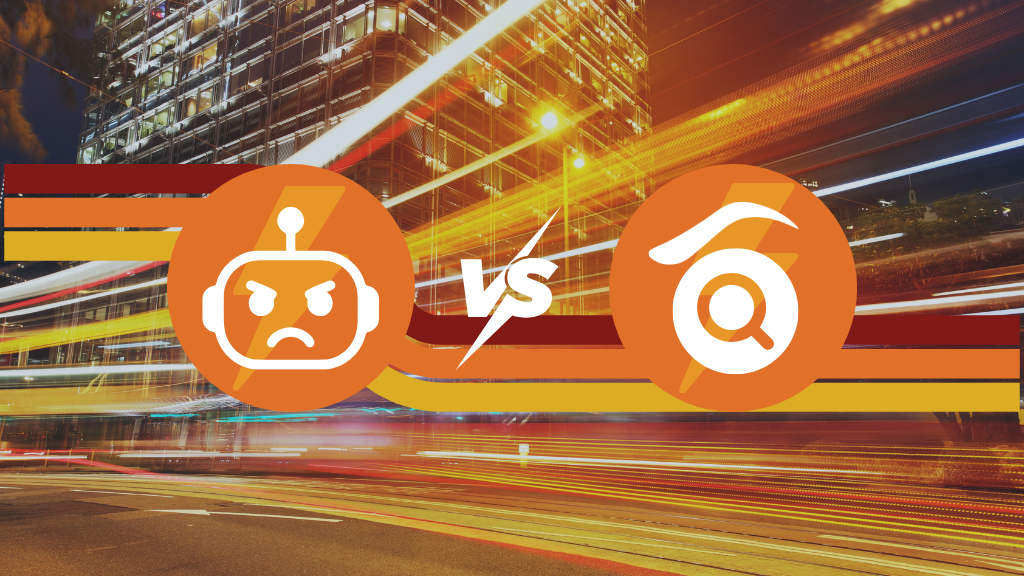In the rapidly evolving digital landscape of 2025, we’re witnessing a fundamental shift in how people seek and consume information. The battle lines are drawn between traditional search engines that have dominated the web for decades and the emerging powerhouse of generative AI. As users increasingly turn to AI-powered tools for quick answers and conversational experiences, the question becomes: which approach truly serves our information needs better?
With ChatGPT receiving 3.8 billion monthly visits and Google maintaining its 90% market share, we’re not looking at a replacement scenario but rather a transformation of how we interact with information. Let’s explore the comprehensive pros and cons of each approach to help you understand when to use what.
Traditional Search Engines: The Established Powerhouse
The Pros: Why Search Engines Still Rule
Comprehensive Coverage and Authority
Traditional search engines like Google have indexed over 50 billion web pages, ensuring vast coverage of virtually all searchable web content. This massive database means you can find information on almost any topic imaginable. The ranking algorithms prioritize high-authority, well-regarded sources, with studies showing that backlinks, keywords, and on-page optimization account for around 50% of ranking weight.
Transparent Source Verification
When you use a traditional search engine, the source of information is immediately apparent. You can see the website, publication date, author, and domain authority before clicking. This transparency allows you to assess credibility, check for bias, and cross-reference information across multiple sources—a critical advantage in our age of misinformation.
Speed and Efficiency for Known Queries
For straightforward information retrieval, search engines deliver results in milliseconds. Whether you’re looking for a specific website, product, or piece of factual information, traditional search excels at connecting you directly to the source without interpretation or summarization.
Cost-Effective Access
Basic use of traditional search engines is completely free, making them accessible to anyone with an internet connection. The advertising-supported model ensures that information discovery remains democratized across economic boundaries.
Diversity of Perspectives
Search engines present multiple sources and viewpoints on any given topic. Rather than receiving a single synthesized answer, users can explore different perspectives, compare arguments, and form their own conclusions based on a range of sources.
Specialized Search Capabilities
Modern search engines offer specialized tools like Google Scholar for academic research, Google Images for visual content, Google Shopping for products, and dozens of other focused search experiences tailored to specific needs.
The Cons: Where Search Engines Fall Short
Information Overload and Irrelevance
With billions of results for most queries, users often face overwhelming choice paralysis. Studies show that 35% of searches require keyword adjustments to get better results, highlighting the limitations in handling nuanced or ambiguous queries.
Keyword Dependence
Traditional search relies heavily on exact keyword matching, which can result in irrelevant results if queries aren’t precisely worded. The technology struggles with understanding context and user intent beyond surface-level keyword analysis.
Time-Intensive Research Process
Finding comprehensive answers often requires clicking through multiple sources, reading various articles, and synthesizing information manually. For complex topics, this process can be extremely time-consuming.
SEO Manipulation
Search results can be influenced by SEO tactics that prioritize visibility over quality. This sometimes leads to content designed for search engines rather than users, making it harder to find genuinely valuable information.
Limited Conversational Interface
Traditional search treats each query as standalone, lacking the ability to maintain context across multiple related questions or engage in natural follow-up conversations.
Generative AI: The Conversational Revolution
The Pros: The AI Advantage
Natural Language Understanding
AI search engines excel at understanding natural language queries and user intent. You can ask questions exactly as you would to a human expert, using colloquial language, complex phrasing, or even incomplete thoughts. The AI interprets context and provides relevant responses without requiring specific keyword optimization.
Instant Synthesis and Summarization
Instead of presenting you with a list of links to explore, AI provides immediate, synthesized answers that combine information from multiple sources. This saves significant time, especially for research-intensive tasks or when you need quick overviews of complex topics.
Conversational Context and Follow-ups
AI maintains conversational context, allowing you to ask follow-up questions, request clarification, or dive deeper into specific aspects without starting over. This creates a more natural, iterative learning experience that mimics human conversation.
Personalized and Adaptive Responses
AI can tailor responses based on your apparent knowledge level, interests, and the context of your conversation. It can adjust explanations from basic to advanced, provide examples relevant to your situation, or focus on aspects most pertinent to your needs.
Reasoning and Analysis Capabilities
AI can perform complex reasoning tasks, compare multiple options, analyze pros and cons, and even walk through problem-solving processes step-by-step. For example, it can compare pricing across multiple tools, calculate totals, and recommend the best option based on specific criteria.
Multi-format Content Generation
Beyond just providing information, AI can generate content in various formats—summaries, bullet points, detailed explanations, code examples, or even creative content—based on your specific requirements.
The Cons: The AI Limitations
Accuracy and Hallucination Concerns
AI language models are “notorious bullshitters,” often presenting falsehoods as facts with complete confidence. They excel at predicting the next word in a sentence but have no inherent knowledge of whether that sentence is actually true. This creates significant risks when using AI for factual information, especially on important topics.
Limited Source Transparency
Many AI tools don’t consistently provide direct links to sources, making it difficult to verify information on the spot. Even when citations are provided, research shows that AI search engines are “all bad at citing news,” with accuracy rates for source attribution remaining problematically low.
Knowledge Cutoff and Timeliness Issues
AI models have training data cutoffs that can leave them uninformed about recent events, breaking news, or the latest developments in rapidly evolving fields. While some AI search tools address this with real-time web browsing, this capability isn’t universal.
Efficiency-Reliability Trade-off
In pursuit of speed and convenience, generative search engines often compromise the depth, diversity, and accuracy of information. The process of synthesizing information requires selection of certain data over others, potentially limiting the breadth of perspectives users encounter.
Resource Intensity and Cost
AI-powered search requires significant computational resources, making it more expensive to operate than traditional search. This cost often translates to usage limits, subscription fees, or restricted access for heavy users.
Reduced Exploration and Discovery
AI’s efficiency in providing direct answers can reduce serendipitous discovery and the broader learning that comes from exploring multiple sources. Users might miss valuable related information or alternative perspectives that would emerge through traditional browsing.
The Current Market Reality: Usage Patterns and Adoption
Despite the excitement around AI search, current data reveals interesting patterns:
- Google maintains dominance: With 89.73% market share as of December 2024, traditional search still rules daily information needs
- AI search is supplementary: Research shows AI search drives less than 1% of traffic to most websites as of 2025, with many seeing numbers below 0.5%
- Generational preferences: Younger users are more likely to start with AI for certain types of queries, while older users prefer traditional search
- Use case differentiation: AI excels for explanatory and analytical tasks, while traditional search dominates for navigation and specific information retrieval
When to Use What: A Strategic Guide
Choose Traditional Search Engines When:
- Verifying facts or checking sources for important decisions
- Researching current events or time-sensitive information
- Comparing multiple perspectives on controversial topics
- Finding specific websites or known resources
- Academic or professional research requiring source attribution
- Shopping or comparing products from multiple vendors
- Exploring a topic broadly to understand the full landscape
- Needing visual content like images, videos, or interactive media
Choose Generative AI When:
- Learning new concepts that require explanation and context
- Brainstorming and creative ideation for projects or problems
- Getting quick overviews of complex topics
- Asking follow-up questions in natural conversation
- Comparing options and getting reasoned analysis
- Simplifying complex information into understandable formats
- Getting step-by-step guidance for procedures or processes
- Drafting or editing content with AI assistance
The Hybrid Future: Best of Both Worlds
The most sophisticated information seekers in 2025 are adopting a hybrid approach, leveraging the strengths of both systems:
- Start with AI for quick understanding and context
- Verify with traditional search for important facts and sources
- Use AI for synthesis after gathering multiple sources
- Employ traditional search for recent developments and breaking news
- Return to AI for clarification and deeper explanation
Industry Implications and Future Outlook
For Content Creators and Publishers
The rise of AI search presents both challenges and opportunities:
- Citation optimization becomes crucial for AI visibility
- Content quality matters more than ever, as AI systems favor authoritative sources
- Direct traffic may decrease as AI provides answers without clicks
- Partnership opportunities emerge with AI platforms seeking quality content
For SEO and Digital Marketing
Traditional SEO isn’t dead, but it’s evolving:
- Generative Engine Optimization (GEO) emerges as a new discipline
- Answer optimization becomes as important as keyword optimization
- Authority and expertise matter more in AI-driven results
- Multi-platform optimization becomes essential for comprehensive visibility
Practical Recommendations for 2025
For Individual Users:
- Develop information literacy skills to evaluate both AI and search results critically
- Use AI for learning, traditional search for verification
- Maintain healthy skepticism about all information sources
- Cross-reference important information across multiple sources and platforms
- Understand the limitations of each tool and adjust usage accordingly
For Businesses:
- Optimize for both traditional search and AI platforms
- Focus on authoritative content that serves both human readers and AI systems
- Invest in source credibility and clear attribution
- Monitor performance across both traditional and AI search platforms
- Prepare for evolving search behaviors and platform preferences
The Bottom Line: Complementary, Not Competitive
The future of information discovery isn’t about choosing between search engines and generative AI—it’s about understanding when each tool serves you best. Traditional search engines excel at providing comprehensive, verifiable, and up-to-date information from trusted sources. Generative AI excels at explanation, synthesis, and conversational exploration of complex topics.
As we navigate 2025 and beyond, the most effective approach involves leveraging both technologies strategically. Use AI to understand and explore, but verify with traditional search when accuracy matters. Let AI help you synthesize information, but don’t let it replace your critical thinking about sources and credibility.
The information landscape is becoming richer and more complex, offering unprecedented access to knowledge and understanding. By understanding the strengths and limitations of both search engines and generative AI, you can make informed choices about which tool to use when, ensuring you get the most accurate, comprehensive, and useful information for your specific needs.
The revolution isn’t about replacement—it’s about evolution. And in this evolution, informed users who understand both systems will be the biggest winners.
Ready to optimize your information strategy? Consider your typical information needs and experiment with both traditional search and AI tools to find the combination that works best for your specific use cases. The future belongs to those who can navigate both worlds effectively.




